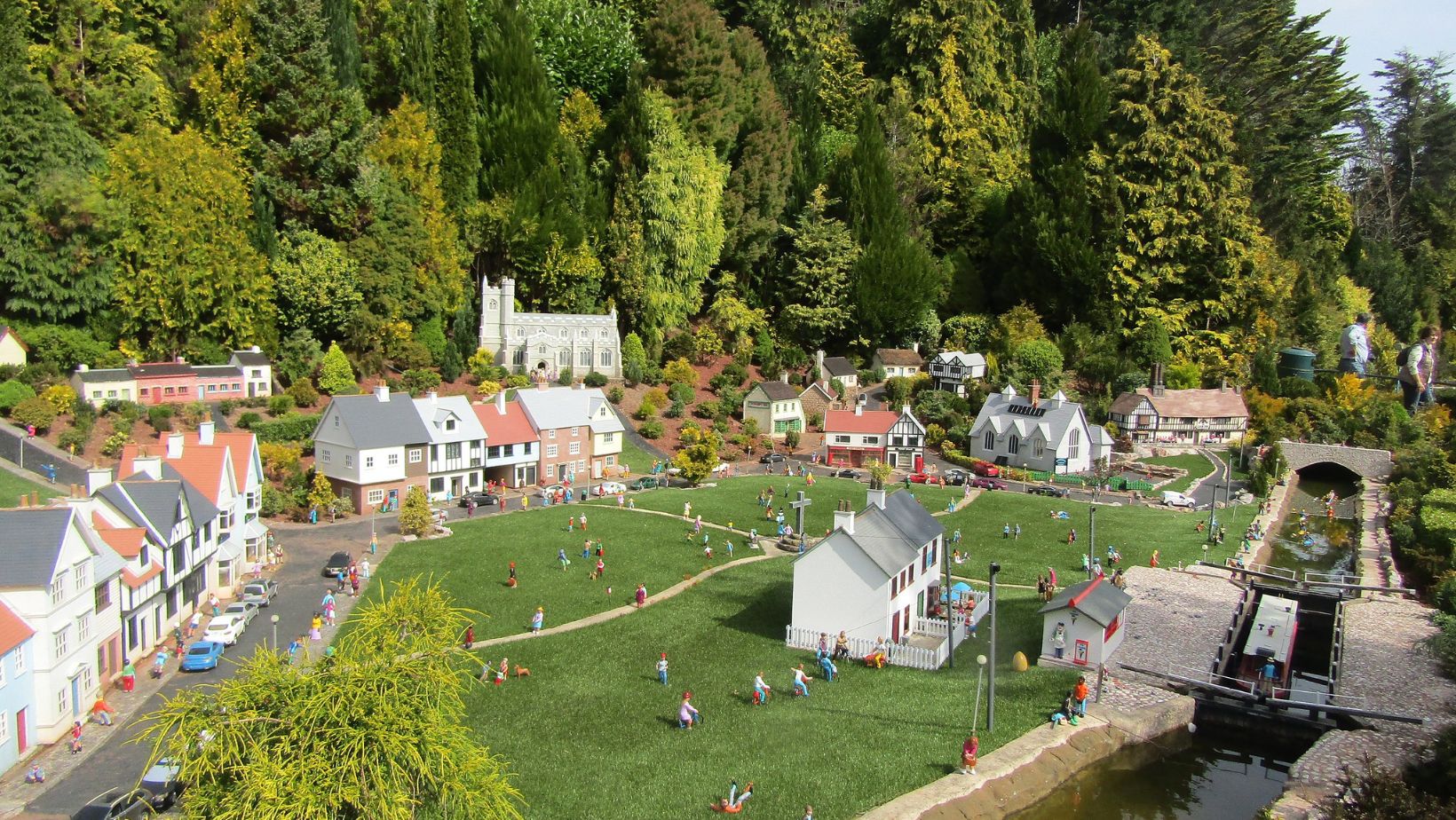What is the Historical Significance of Bampton Devon?
Bampton Devon, a small town in the county of Devon, England, is steeped in history. Once a thriving wool town in the 18th and 19th centuries, it is home to many historical buildings and structures, some dating back to the 17th century. Bampton is also known for its annual fair, which has been held since 1258 and is one of the oldest surviving charter fairs in the country.
What Natural Attractions Can You Find in Bampton Devon?
Bampton Devon is surrounded by beautiful natural landscapes. The town is close to the Exmoor National Park, a unique landscape of moorland, woodland, valleys and farmland. The park is home to a rich variety of wildlife and offers many walking and cycling routes. Bampton is also near the River Exe, offering opportunities for fishing and canoeing.
What Architectural Gems are there in Bampton Devon?
Bampton Devon boasts several architectural gems. The Church of St Michael and All Angels, a Grade I listed building, features a 13th-century tower and a beautifully carved rood screen. The town also has many charming thatched cottages and Georgian houses, as well as a number of listed buildings.
What are the Traditions and Events in Bampton Devon?
One of the main traditions in Bampton Devon is the Bampton Fair, held on the last Thursday of October. The fair, which includes a street market, craft stalls, and live entertainment, attracts visitors from all over the country. Bampton also hosts the Bampton Open Gardens event, where residents open their gardens to the public, and the Bampton Spring Fest, a celebration of local food and craft.
What Amenities Does Bampton Devon Offer?
Despite its small size, Bampton Devon offers a range of amenities. The town has a post office, a library, a primary school, and several shops, including a butcher, a baker, a greengrocer, and a convenience store. There are also several pubs and restaurants in the town, offering a range of cuisines.
How Can You Reach Bampton Devon?
Bampton Devon is easily accessible by road. The town is located on the A396, which runs between Tiverton and Dulverton. The nearest railway station is Tiverton Parkway, which is about 10 miles away. There are also regular bus services to and from Tiverton.
What Accommodation Options are Available in Bampton Devon?
Bampton Devon offers a range of accommodation options, from traditional bed and breakfasts to self-catering cottages. There are also several campsites and caravan parks in the surrounding area.
What is the Weather Like in Bampton Devon?
Bampton Devon enjoys a temperate climate, with mild winters and warm summers. Rainfall is spread evenly throughout the year, with the wettest month usually being December.
What are the Highlights of a Visit to Bampton Devon?
A visit to Bampton Devon offers many highlights, from exploring the town’s historical buildings and charming streets, to enjoying its natural beauty and local events. Whether you’re interested in history, nature, architecture, or simply enjoying a peaceful break, Bampton Devon has something to offer.
What is the Population of Bampton Devon?
The population of Bampton Devon is approximately 1,300 people. Despite its small size, the town has a strong sense of community and a vibrant local culture.
Is Bampton Devon a Good Place to Live?
With its rich history, beautiful surroundings, and friendly community, Bampton Devon is considered a great place to live. The town offers a peaceful rural lifestyle, yet is within easy reach of larger towns and cities.
What Schools are in Bampton Devon?
Bampton Devon is home to Bampton Church of England Primary School, which serves children aged 4 to 11. There are also several secondary schools and colleges in the surrounding area.
What is the Wildlife Like in Bampton Devon?
The area around Bampton Devon is rich in wildlife. The nearby Exmoor National Park is home to red deer, Exmoor ponies, and a variety of bird species, while the River Exe is known for its salmon and trout.
What is the Economy Like in Bampton Devon?
The economy of Bampton Devon is largely based on agriculture, with many residents involved in farming. The town also benefits from tourism, with visitors attracted by its historical buildings, beautiful scenery, and local events.
What is the Future of Bampton Devon?
Bampton Devon is a town that cherishes its history while looking to the future. There are plans for new housing developments to accommodate its growing population, and the town continues to attract new businesses and visitors with its charm and character.
| Historical Significance | Natural Attractions | Architectural Gems | Traditions and Events | Amenities |
|---|---|---|---|---|
| Once a thriving wool town, Bampton is home to many historical buildings and hosts one of the oldest surviving charter fairs in the country. | Bampton is close to the Exmoor National Park and the River Exe, offering opportunities for walking, cycling, fishing and canoeing. | The town boasts several architectural gems, including the Church of St Michael and All Angels and many charming thatched cottages and Georgian houses. | The Bampton Fair, Bampton Open Gardens, and Bampton Spring Fest are some of the main events in the town. | Despite its small size, Bampton offers a range of amenities, including a post office, a library, a primary school, and several shops, pubs and restaurants. |
For more information about Bampton Devon, visit the official Visit Devon website.
